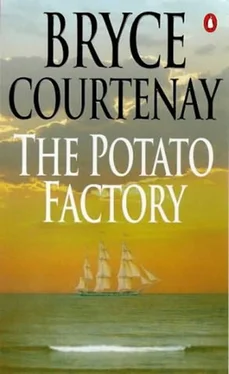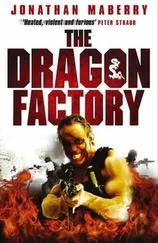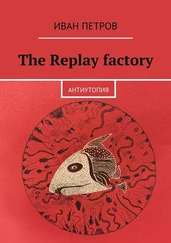Much has been made of the Van Diemen's Land convict being made to pull the plough though, in truth, it was more as a cart horse than as an ox that he was customarily employed. The cart was as integral a part of the road gang as the pick-axe, shovel and wheelbarrow, and much the most onerous of the tasks allotted to a convict.
These carts, measuring six feet in length, two in depth and four and a half in width, were pulled by four men, as it was mistakenly calculated that this amount of human muscle is the equivalent to one well-conditioned cart horse. This might have been so if the men had been in excellent health and were the stature of a giant, six feet or more. But the prisoners were of an average English height, not much more than five feet and three inches and they were malnourished and scrawny. The four team members had leather collars which were attached by ropes and a hook to the cart. Near the extremity of the central harnessing pole were a pair of cross-bars which, when gripped, allowed for two men on either side of the pole to pull the cart. It was mandatory to fill the cart, usually with rocks and dirt, to the point of overflowing, which made it a herculean task to move.
Ikey had at first been given a pick-axe, a tool with which he was entirely unfamiliar. Besides, his confinement in chains on board ship had enfeebled him and his hands were as tender as an infant's. Despite being instructed by the more experienced lags to piss upon each hand to harden the surfaces of his palms, on Ikey's first day of labour his hands soon blistered. On the second day, the skin peeled away from the entire palm and even from between his fingers, and his fingernails were ripped off as a consequence of being made to labour with such a rough and heavy tool. But he was forced to labour for two more days until the handle of the pick was stained with his own blood, and particles of flesh remained upon it whenever he withdrew his hands. The pick itself was too large for even a robust man of his height, and Ikey was reduced to whimpering with each downward strike. Finally, an hour before sundown on the fourth day, he collapsed.
Several kicks of a more than tentative nature, administered by the overseer, Harris, failed to get Ikey to his feet. It was only when he was observed to cough blood that he was placed in a wheelbarrow after the day's work and several convicts, cursing him loudly, were made to take turns wheeling him back to Richmond Gaol.
That night the doctor was called to examine him. He thumped Ikey on the chest, and peeled back his eyes to peer at the jellied orb, whereupon he made him drop his breeches and, weighing his balls in his hand, commanded him to cough. Finally he squeezed Ikey's thigh and calf muscles. Standing up again he declared him fit to work.
'It be nothing but the softness of the voyage. This one will soon enough harden to labour. Put him back to work I say!' He seemed annoyed at being called out after supper for a matter so inconsequential and the superintendent felt compelled to apologise to him, explaining that Ikey was a prisoner of some renown or he would not have disturbed the good doctor.
Ikey groaned and held the lumps of raw flesh up for the surgeon to see. 'What about me hands?' he pleaded.
'Piss and spit soon fix them, my boy!' the doctor said, then turned to the superintendent. 'Tell the overseer to put this prisoner on carts – his legs be well muscled and strong enough by all accounts.'
Though the work on the carts was harder, each team being required to pull ten loads each of a mile every day, it suited Ikey better. Years of walking about the London rookeries at night had made his legs strong, and the strength of a prisoner's legs played the major function in pulling the brutal cart.
To add to the humiliation of the work, Harris thought it high jinks to place beside Ikey at the crossbar a black boy named Billygonequeer, who was captured as a lookout while other members of his Stoney Creek tribe were said to be raiding sheep. Billygonequeer had been in captivity three years when Ikey joined the road gang, and his major claim to fame was that he had received the most stripes to his back of any in their company. He would work as hard as any man at pulling the cart and no prisoner could fault him for not doing his share. But every few weeks, as though he sniffed something in the air, he grew most melancholy, would take no food, and refused to work by standing rigid in a single place. This was known to all in the road gang as 'Billy gone queer' and so the black boy had received this strange appendage to his name.
At night it was not customary to lock Billygonequeer in the cells. For if he should be placed in close confinement he would commence to shout all night so that no prisoner could sleep a wink. And so, summer and winter, with only a blanket to cover him for the coldest part of the year, he would be chained to a ring set into an outer wall which formed part of the courtyard of the gaol. Here he would sleep like an animal on the hard cobblestones.
But when Billygonequeer went queer, he would stand all night and look upwards at the stars and howl exactly like the Tasmanian tiger, the thylacine, a creature dog-like in appearance and extremely shy of humans. This beast, only seldom glimpsed in the outer camps and always in the depths of the forest where it would come to stand just beyond the edge of the firelight at night, was familiar to timber workers and road gangs for its dreadful howl. It was a hollow sound that came from inside, as though vibrating from deep within the chest, and was most disconcerting to the ear. Billygonequeer did not so much appear to make the sound as to be the sound. His eyes seemed to turn yellow and catch the light in the darkness, and his jaws unlocked and widened as the terrible creature cacophony came from him. They had tried to gag him once but this proved to no avail – the sound continued as though it emanated from his chest and sought no expulsion from his lips.
When morning came Billy still would not move and it was impossible to imagine that a man could stand so rigid and so long in one spot. If he should be knocked down by the overseer, as often happened, he would not cry out, but would get back to his feet and stand as before, impervious to pain.
Harris, despite having seen Billygonequeer go queer on numerous occasions, could not bring himself to accept his condition. He was a stickler for the rules and greatly afraid of the wrath of the authorities, and on each occasion he would cause Billy to be dragged before the district magistrate. Here Billy would stand before the beak, his dark eyes glazed over as though he were in some distant place of his imagining. Nor would he respond to questions, though his comprehension of English was said to be quite sufficient to this task. Finally, the magistrate, partly angered and bemused and in all parts impatient, would declare himself compelled to obey the law. He would hand down the most severe punishment for refusing to work, a sentence of one hundred lashes with the cat o' nine tails.
A month after Ikey had been put to the cart beside Billy, following the eating of their midday rations, Billy had suddenly turned his head in the direction of a breeze which had that very moment blown up and commenced to sigh high in the giant gum trees. He jumped to his feet and seemed to breathe deeply, pulling the air into his nostrils so that his broad nose flattened upon his face. In great agitation he began to tear his clothes from his slim body, as though some vicious biting insect were to be found within them. As each garment was removed he flung it into the bushes. Then he gave a great sigh and, naked as the day of his birth, stood rigid with his arms to his sides, the pale palms of his hands turned outward. His only movement was the distension and retraction of his nostrils as he pulled the wind into him, as though it were some invisible musk sent from heaven.
Читать дальше












